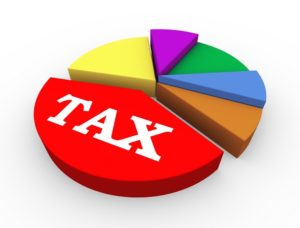In early spring of 2016, Governor Cuomo of New York signed into law the 2016-2017 Budget Act (S6409C/A9009C) (“Budget Act” or “Act”). This legislation includes amendments to the New York tax reform legislation contained in the 2014-2015 New York State Budget and the New York City tax reform legislation contained in the 2015-2016 New York State Budget. It also contains provisions which affect certain state credits and incentives, and state sales tax provisions. This is the third part of a three-part series summarizing some of the more significant provisions of the Budget Act.
Interest or bad debt deductions
The corporate tax reform changes within the 2014-2015 and 2015-2016 New York State Budgets provided an interest or bad debt deduction for certain New York State and New York City taxpayers, to encourage small business and residential loans. In New York City, these taxpayers included certain thrift institutions and qualified community banks and taxpayers that own qualified affordable housing and low-income community loans. For both, the computation of the deduction considers the total assets of the taxpayer. The Budget Act includes amendments that impact the measurement of total assets related to leased real property not reflected on the taxpayer’s balance sheet included in total assets.
Sales and use taxes
Some significant changes to New York State tax law related to sales and use taxes are as follows:
- Exempts purchases of hotel room occupancies by room re-marketers when those purchases are made from hotels for later resale. This exemption applies to rent paid for hotel room occupancies on or after June 1, 2016.
- Exempts beer, cider, liquor, or wine used by producers at tastings from New York’s alcoholic beverage tax, and exempts these beverages and other defined inventory items from New York use tax.
- Excludes sales of fuel for use in commercial and general aviation aircraft from local sales taxes and from the prepayment of sales tax on motor fuels. These provisions are effective as of December 1, 2017.
The budget plan also included a significant personal income tax reduction, which will be phased in through 2024, resulting in an estimated $4.2 billion tax reduction once it is fully implemented.
An experienced and knowledgeable tax professional may help any individual or business assess their current tax situation as it stands in the present looking ahead to the future. A tax professional may evaluate anyone’s situation to help determine the wisdom of any year-end tax-savings moves. If you are an individual or business in the New York or Tri-State area and have any question about taxes, especially in planning ahead for the next filing season, call THE TAX EXPERTS at the Thorgood Law Firm www.thorgoodlaw.com. For a FREE consultation call 212-490-0704.
I enjoy the article
Thanks for the excellent guide